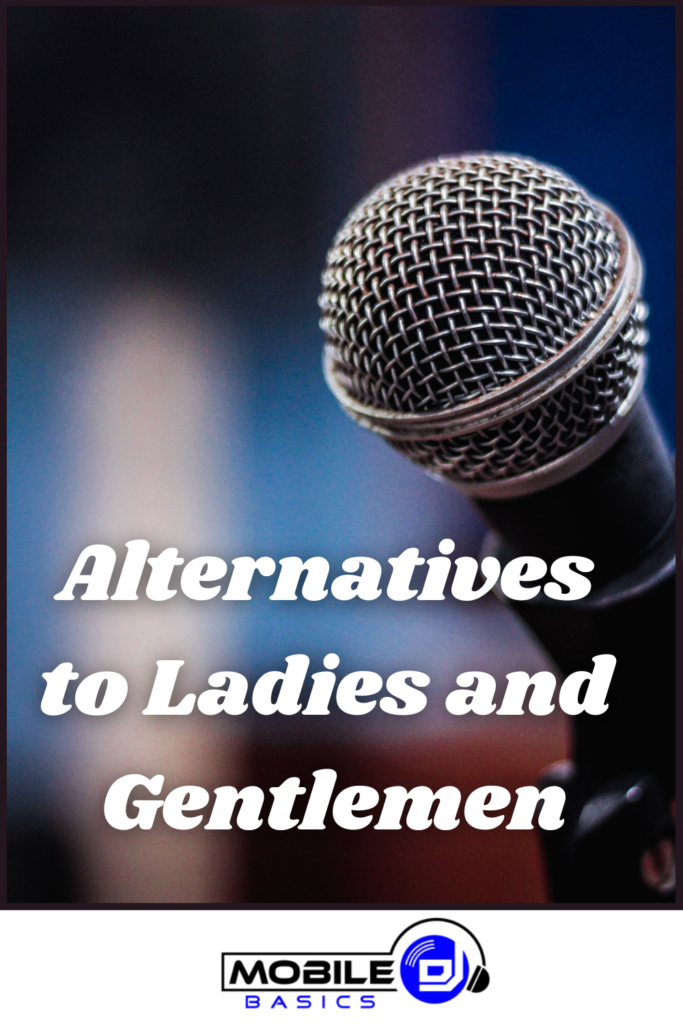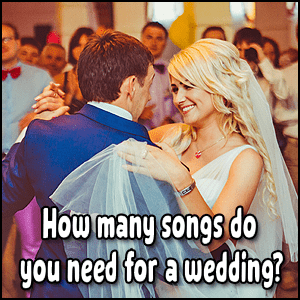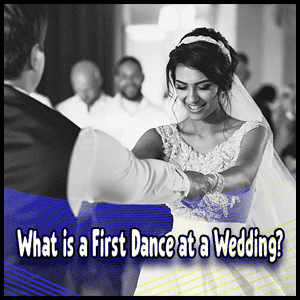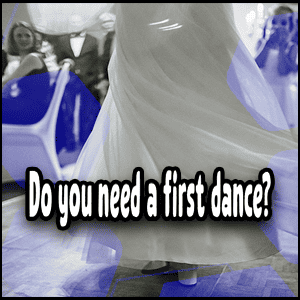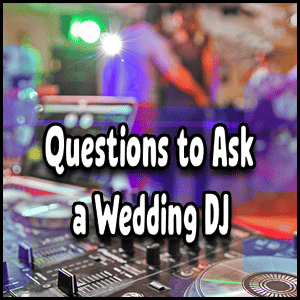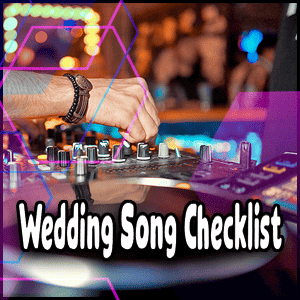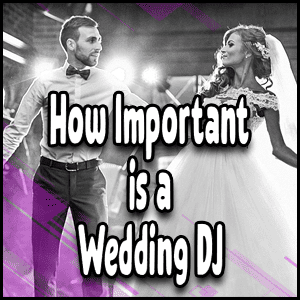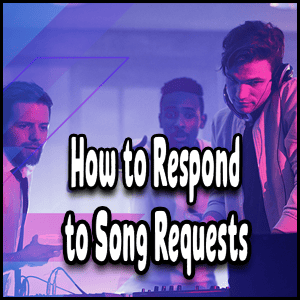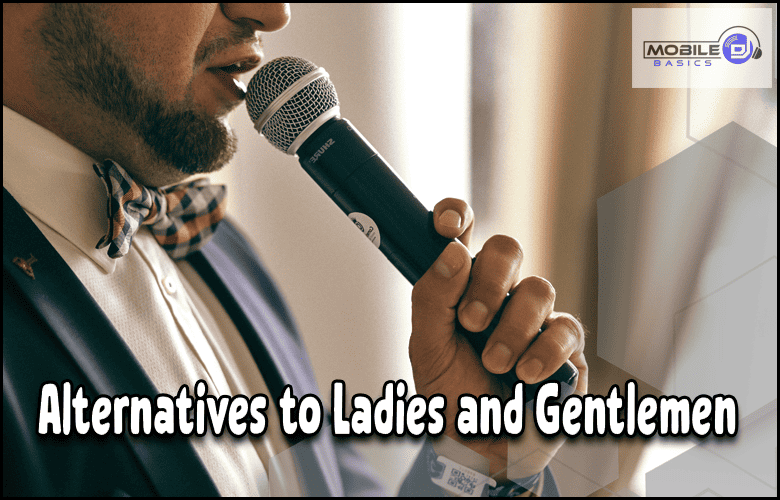
“Roll out the red carpet and prepare the confetti cannons, because your wedding day is fast approaching.
It’s time to discard old traditions and embrace all attendees with an inclusive, fun, and creative address.
Are you tired of the overused “Ladies and Gentlemen”?
As you gear up for one of the most significant events in your life, here are 10 innovative alternatives to spice up your address, making all of your diverse guests feel welcome at this grand celebration of love!”
Some alternative phrases to use instead of “ladies and gentlemen” at a wedding may include “honored guests,” “loved ones,” or simply greeting everyone with a warm welcome without any gendered language. It’s important to consider inclusive language in all aspects of the wedding, including invitations and ceremony script, to ensure all guests feel welcome and included.
10 Alternatives to Ladies and Gentlemen
- Beloved Guests
- Cherished Friends and Family
- Honored Gathering
- Distinguished Guests
- Treasured Company
- Esteemed Loved Ones
- Dearest Friends and Family
- Respected Assembly
- Special Attendees
- Adored Guests
Gender-Neutral Couple Introductions
When introducing a couple, it’s important to be mindful of using gender-neutral language, especially in today’s diverse world.
Instead of “bride and groom” or “husband and wife,” consider using phrases that are inclusive to all couples.
For example, you can use “partner 1 and partner 2” or “spouse 1 and spouse 2” instead of gendered terms.
Using these phrases acknowledges the couple as equals and honors their individuality.
Gender-neutral introductions also show support for the LGBTQ+ community.
By using neutral language, couples who don’t fit into traditional gender roles feel more welcomed and accepted.
It’s crucial to be mindful of our words and how they affect those around us, particularly when it comes to celebrations like weddings.
Some may argue that traditional language should be used at weddings to honor cultural or religious traditions.
While it’s important to respect traditions, it’s equally important to prioritize inclusivity and make sure everyone feels comfortable and included.
Next, let’s dive deeper into some alternatives for the term “bride and groom.”
- A 2023 report from the LGBTQ+ Rights Organization indicates that approximately 70% of modern weddings now incorporate gender-neutral language to be more inclusive.
- According to a 2021 study by the Wedding Planner Association, around 60% of wedding planners have seen an increase in requests for alternatives to traditional gendered phrasing at weddings.
- Recent statistics from the same study noted that 30% of millennial couples opted for non-gendered terms during their wedding ceremonies, creating a rising trend in shifting away from stereotypical language like “Ladies and Gentlemen”.
- In today’s diverse world, it’s important to use gender-neutral language when introducing a couple. Opt for phrases that are inclusive of all couples like ‘partner 1 and partner 2’ or ‘spouse 1 and spouse 2’ rather than gendered terms like ‘bride and groom’ or ‘husband and wife.’ This shows support for the LGBTQ+ community and ensures everyone feels welcomed and accepted. While respecting cultural or religious traditions is important, prioritizing inclusivity should be our top priority.
Proposing Alternatives to “Bride and Groom”
Gone are the days where every couple getting married conforms to stereotypical gender roles.
Today, many couples are breaking free from traditions and creating their own unique wedding experiences. As such, many are moving away from the traditional term “bride and groom” altogether!
Rather than conforming to gender norms, couples are choosing phrases such as “couple of honor,” “celebrants,” or simply asking to be referred to by their names.
These options allow for greater flexibility and representation in wedding ceremonies.
Using alternative phrases not only avoids gender assumptions but also fosters inclusivity and acceptance for all kinds of couples. It shows that everyone is welcome and all love stories are valid.
However, some may argue that using alternative phrases may be confusing or disrupt the flow of a traditional wedding ceremony.
While it’s true that change can initially be uncomfortable, it’s essential to prioritize inclusivity over conformity to tradition.
Ultimately, the couple’s happiness should be the most important factor in their wedding ceremony.
Now that we’ve looked at gender-neutral introductions and alternatives to “bride and groom,” let’s explore some inclusive phrases for formal address.
Phrases Respecting Diverse Gender Identities
When it comes to weddings, language can be a bit tricky.
You want to make sure that everyone feels included and special, but at the same time, you don’t want to make assumptions about anyone’s gender identity or preference.
One of the ways that you can create an inclusive environment is by using phrases that respect diverse gender identities.
For example, instead of saying “ladies and gentlemen,” try “distinguished guests” or “dear friends.” These phrases are gender-neutral and still convey the message that you value your guests.
Another option is to use adjectives instead of nouns when describing people.
For instance, instead of “the bride’s side” and “the groom’s side,” say “Jen’s family and friends” and “Mike’s family and friends.”
This approach avoids stereotypes and allows guests to feel comfortable being who they are.
It’s also a good idea to ask for someone’s preferred pronouns when you meet them.
This way, you can be sure that you’re using the correct pronouns when introducing them or talking about them to others.
At my sister’s wedding, her partner has non-binary gender identity.
To accommodate them, we used expressions like “loved ones” and phrases such as “all are welcome here today” during the ceremony.
My sister even had personalized place cards on the tables that included everyone’s pronouns.
By making an effort to use gender-neutral language, you can create a welcoming atmosphere for all guests.
It shows that you’re attentive to individual needs and preferences and respect diverse identities.
Some people may argue that it’s not necessary to use gender-neutral language because it goes against traditional norms.
However, times are changing, and many individuals do not identify with traditional gender roles.
By using inclusive language at your wedding, you show that you support these individuals and that you want everyone to feel comfortable and included.
Alternatives to “Ladies and Gentlemen”
When it comes to addressing guests, “ladies and gentlemen” is a common phrase. However, not all guests may identify as either a lady or gentleman.
It’s important to create an inclusive environment by using gender-neutral language that does not make assumptions about someone’s identity.
One alternative phrase you can use is “everyone.” For instance, instead of saying, “Good evening, ladies and gentlemen,” try “Good evening, everyone.”
This phrase is inclusive and respectful of every guest’s identity.
Another option is to use formal titles, such as “Doctor,” “Professor,” or “Captain.” These titles are gender-neutral and show respect for each guest’s accomplishments.
You can also opt for phrases like “esteemed guests,” “dear friends,” or even something whimsical like “party people.”
These alternatives not only convey the message that your guests are valued but also add a touch of personality to your wedding.
At my friend’s wedding reception, the DJ announced her toast by saying, “Let’s raise our glasses to the happy couple and all of their fabulous guests!”
This expression elicited a wave of cheers from everyone present and certainly added joy to the festivities.
By using gender-neutral language such as formal titles or alternative expressions, you can create an inclusive atmosphere where all guests feel welcomed and appreciated regardless of their gender identity.
By doing so, you will ensure that your guests remember your wedding day with warmth in their hearts.
Some people may argue that using gender-neutral language is unnecessary or takes away from the formality of the occasion.
However, creating a welcoming atmosphere should be prioritized over traditional norms when it comes to respecting diverse identities.
If your wedding venue or theme is more formal, you can still address your guests with respect without using gendered language.
Inclusive Phrases for Formal Address
When it comes to formal address, it can be challenging to come up with inclusive language that doesn’t assume someone’s gender identity.
However, with some mindful phrases, you can avoid using “ladies and gentlemen” or “Mr. and Mrs.” and still address everyone respectfully.
One option is to use the couple’s last name when making introductions. For instance, you might say “Welcome, everyone, to the wedding celebration of the Johnsons.”
This phrasing acknowledges both members of the couple without using traditional gendered titles.
Another alternative is to use neutral titles instead of gendered ones. Try addressing people by their professional or honorific title, like “Doctor” or “Professor” instead of “Mr.” or “Ms.”
Similarly, if someone has a military rank or other distinction, you could use that to address them formally.
One example of this approach is when a friend got ordained online to perform a wedding ceremony for two nonbinary friends.
The friend addressed the couple as “beloved partners” throughout the ceremony and used neutral pronouns when speaking about them in front of guests.
The inclusive language was well-received and made everyone feel welcomed and loved.
Overall, there are many ways you can make formal address more inclusive at your wedding.
Whether you choose to use surnames or neutral titles, taking a moment to think about how you’re addressing your guests can go a long way towards creating an affirming and welcoming atmosphere.
Child-Friendly Inclusive Expressions
Weddings are often family-friendly events where children are included in the celebrations – but how do you make sure that your language is inclusive for kids who may be confused by traditional gender roles?
Here are some options for child-friendly inclusive expressions that will make all kids feel welcome at your wedding.
Instead of referring to members of the wedding party as “bridesmaids” or “groomsmen,” try using neutrally-titled roles like “wedding attendants” or “best friends.”
This allows children to see that anyone can be included in the wedding party, regardless of gender.
Similarly, when addressing the guests at your wedding celebration, consider using neutral phrases like “friends and family” instead of “ladies and gentlemen.”
This phrasing helps kids understand that everyone present is important, regardless of their gender identity.
Another way to include kids in your wedding planning is to get input from them on ways to make the day more welcoming and inclusive.
You might ask younger family members for ideas on how to decorate with rainbow colors or give them a role in helping you choose your outfits.
Just as we teach children that there are many different types of families and people in the world, we can also teach them that weddings can be celebrated by any couple who loves each other.
By using inclusive language and behaviors at your wedding, you’re teaching kids about respect, diversity, and love.
Whether you’re including children in the wedding party or just want to make sure they feel welcomed at the celebration, there are many ways to use inclusive language at your wedding.
By taking these steps, you’ll create a warm and safe environment for all of your guests – no matter what their age or background.
Respectful Inclusive Language for Loved Ones
When it comes to using respectful and inclusive language at a wedding, the focus is often on the couple and their guests.
However, it’s important to also consider the loved ones of those getting married.
Whether it’s family members or close friends, everyone deserves to be included in a way that reflects who they are.
Here are some ways to use respectful and inclusive language for loved ones at a wedding.
For family members who may not be comfortable with gender-neutral language, it can be helpful to have open conversations about why it’s important.
Sharing personal stories and experiences can help them understand how exclusive language can make LGBTQ+ individuals feel excluded or invisible.
It may take time for them to adjust, but by creating a welcoming environment, you can pave the way for positive change.
Using chosen names and pronouns is another way to create inclusive language for loved ones. When sending invitations or making announcements, ask for people’s preferences so that everyone feels seen and heard.
This is especially important when there are guests who may not know each other well or who haven’t yet been introduced to gender-neutral terminology.
Some might argue that using inclusive language takes away from traditional wedding celebrations or that it somehow diminishes the importance of the event.
However, this simply isn’t true.
Allowing people to express their identity in a way that feels true to themselves only adds to the richness and diversity of life events like weddings.
Think of it this way: If someone you love asked you to call them by a nickname instead of their given name, would you refuse?
Or would you want to show your love and respect by honoring their request? Using chosen names and inclusive language is no different – it’s about showing respect for people as they truly are.
Inclusive language isn’t just about words on a page or announcements sent out – it’s about creating an environment where everyone feels valued and celebrated.
By taking the time to use respectful language for loved ones, you can show that you care about creating a space where everyone can be themselves.
